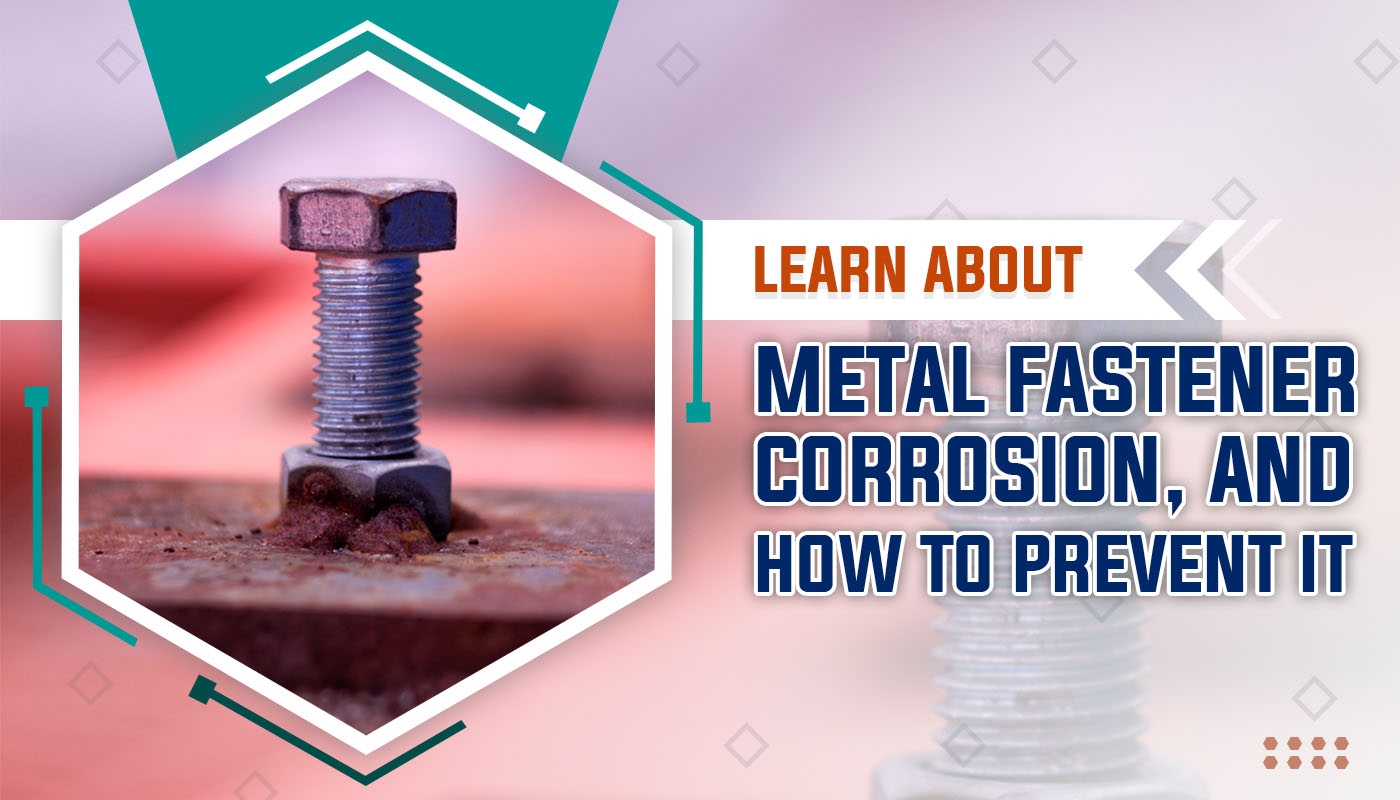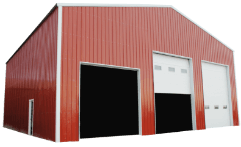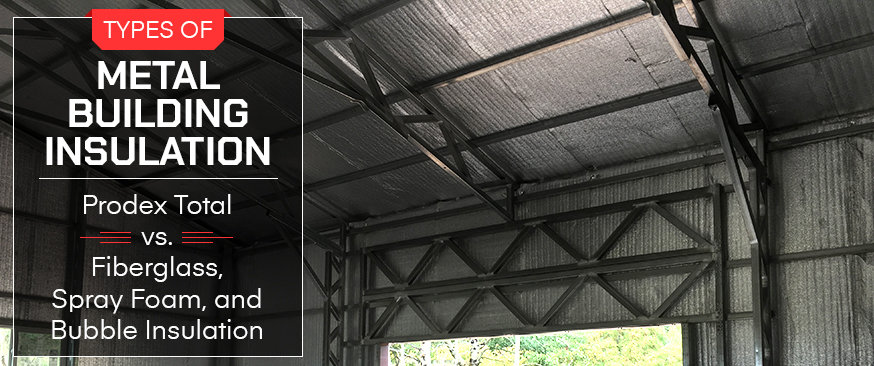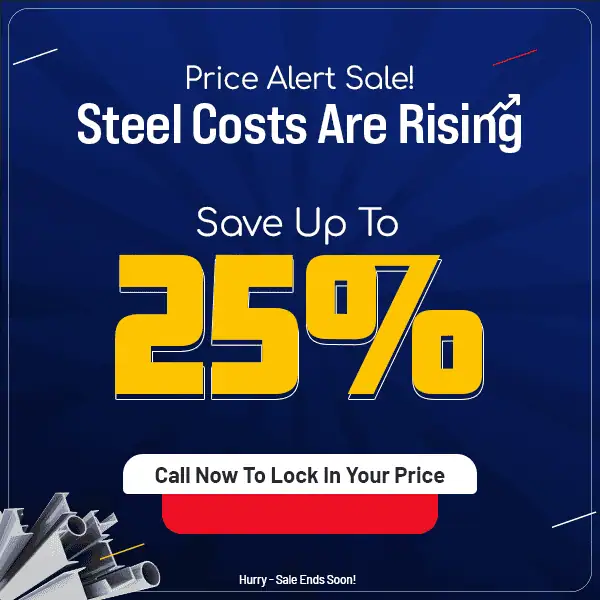Learn About Metal Fastener Corrosion, and How to Prevent It
 April 14, 2021
Posted in: Metal Building Insulation
April 14, 2021
Posted in: Metal Building Insulation

One of the most common and essential components present in metal buildings are metal fasteners. There are two types of Metallic fasteners – both permanent and releasable. Some of the examples of these fasteners include nut-bolts, metal screws, clamps, rivets, rings, couplers, and pins.
Talking about metallic objects like steel fasteners, the primary threat associated with them is corrosion. This can be detrimental to metallic fasteners because it can damage their build, appearance, and bonding strength, leading to compromised structural integrity. You may want to know how to prevent metal fasteners corrosion, and we are happily here to help you better understand that.
What is Corrosion of Metallic Fasteners?
Let’s begin with understanding corrosion. It is the most common problem that occurs in metals or any metallic object.
Corrosion is the term used for the electro chemical reaction that occurs in metallic objects. When the metal ions collide with moisture or air particles, the electro chemical tension between the moisture droplets and metal ions ultimately leads to the dissolution of the metal ions.
The result is the development of a layer of oxide hydrate, or rust, on the surface of the metal objects. Many types of corrosion happen due to the different factors involved, such as the metal type, surface type, and exposure type.
The following are the significant types of corrosion;
- Uniform Corrosion: It causes a uniform layer of rust all over the exposed metal surface.
- Galvanic Corrosion: It occurs when two metals are exposed together to moisture.
- Crevice Corrosion: It appears in the selective parts of metallic objects highly exposed to water.
- Pitting Corrosion: It occurs on highly noble metallic surfaces.
- Stress Corrosion: It is an extended form of pitting corrosion, resulting due to tensional differences.
- Intergranular Corrosion: It occurs in stainless steel objects due to exposure to extreme heat.
What Causes the Metallic Fasteners to Corrode?
The first step towards the treatment of any issue is to have proper knowledge of the cause. The primary reason for metallic fasteners failure is fastener corrosion. Now, let’s understand what causes metal fastener corrosion.
Usually, metallic fasteners are attached to other metallic objects. This is the first step that makes the pins prone to corrosion. The next thing that plays a significant role in triggering deterioration is the electric potential of the connected metals.
As moisture gets in contact with the two different metallic surfaces, the water ions react differently. This is the electric potential tension between the two metals that leads to creating a galvanic cell. In this cell, a low-energy electric current starts flowing from one metal to another, or from higher to lower electrical potential metal.

When the electric potential of fasteners is higher than the other metal, the above phenomenon occurs. The outflow or electric current or electrons from the high potential metal fastener represents the loss of ions. As a result, rusting takes place over the lost electron layer, and the metal fastener is called corroded.
Let’s also go over what happens when the metal fasteners begin to corrode;
- They lose the mechanical strength that renders them unfit for holding parts.
- They suffer from fatigue that leads to them cracking at the corroded spots.
- They start weakening and become brittle due to stress.
- They transfer the erosion to the material they are attached to. The surface of the latter directly touching the corroded fasteners also starts eroding.
What is Galvanic Corrosion?
Though fasteners can undergo any type of corrosion, they are most prone to Galvanic Corrosion. This is a type of corrosion that occurs when two different types of metals are involved. Galvanic corrosion represents the electrochemical reaction that occurs upon the contact of two or more potentially different metal types.
When two metals are placed in close proximity to each other, they begin exchanging electrons. This flow of electrons takes place from higher potential metal (anode) to lower potential metal (cathode). Thus, the higher potential metal eventually starts losing electrons, which also tantamount to corrosion of the metal. The ion loss leads to the metal becoming weaker and degraded.
Galvanic corrosion can happen even if the two metals are indirectly connected. Things like conductive electrolytes can help the breakdown to occur too. The intensity of galvanization is also directly proportional to the difference in the electric potential of the metals in contact.
How Can I Prevent Fastener Corrosion?
Now that you understand the essential details of metal fastener corrosion, let’s give you some valuable tips on how to prevent it:
- The first step is to avoid using fasteners with highly different electric potential than the other metal surface. For example, don’t use steel screws with any zinc surface. Choose fasteners with a similar electric potential to the other metallic object.
- You can opt for painting, sealing, coating, insulating, etc., to protect the fasteners against open and direct exposure.
- Avoid exposing the fasteners to potentially corrosive situations. Protect them against exposure to water or other conductive electrolytes.
- Also, remember to fit fasteners with constant pressure to avoid any moisture creaking.
Remember that the fasteners will eventually rust and degrade. However, you can delay that process with the help of the proper preventive measures and care. It is always better to take the first step right. On that note, the best option is to only buy the best fasteners that are tested to be corrosion-proof.
Get Your Fasters from Get Carports Today!
The metal buildings by Get Carports have been trusted by many for their structures. Get Carports provides the highest quality metallic buildings parts for many years now.
They also guarantee the best prices, along with timely delivery and free installation. Get Carports has a team of highly trained and qualified consultants here to help guide you throughout the entire process of structure building and installation.
Get your metal building from Get Carports today and forget about the risk of your stainless steel screws rusting away completely. Get in touch with them at (800) 691-5221 to best ensure the safety and security of your structures!







